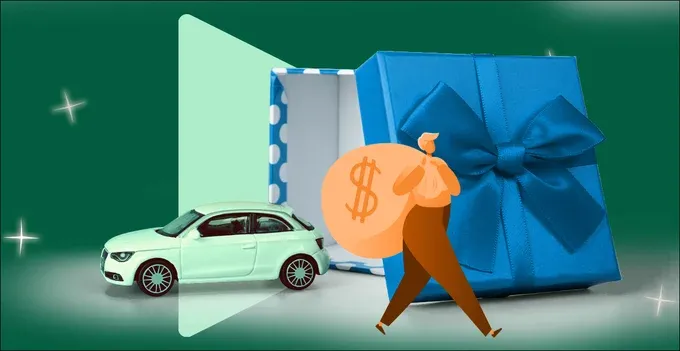6 Steps to Refinance a Car Loan in Singapore
Updated: 29 Jul 2025
Written bySingSaver Team
Team

The information on this page is for educational and informational purposes only and should not be considered financial or investment advice. While we review and compare financial products to help you find the best options, we do not provide personalised recommendations or investment advisory services. Always do your own research or consult a licensed financial professional before making any financial decisions.
Refinancing a car loan involves taking a new loan to pay the existing loan, often with better terms, such as a lower interest rate or a different repayment period. This helps reduce your monthly payments and save money on interest. For example, if you owe S$60,000, a new lender will pay off the old lender, and you’ll owe the S$60,000 to the new lender, potentially at a lower interest rate, saving you money.
Refinancing is particularly beneficial if your credit score has improved by paying the original loan or if you were initially offered a high interest rate. The process typically takes less than an hour to apply for, with many lenders in Singapore offering immediate loan decisions.
Let's walk you through each step of refinancing a car loan.
Evaluate your current car loan
Before refinancing your car loan, start by reviewing your current loan details. Locate your contract to find your monthly payment, the number of months remaining, and the payoff amount, which may differ from your remaining loan balance. Also, check if there are any penalties or fees for early repayment.
Assess your car’s value
To determine your car’s value for refinancing purposes in Singapore, it's essential to understand the factors that contribute to its valuation. Car valuation in Singapore is based on three primary factors: the Open Market Value (OMV), Additional Registration Fee (ARF), and Certificate of Entitlement (COE). Additionally, the condition of your car and its mileage also play a role.
-
Open Market Value (OMV): This is assessed by Singapore Customs when the car is imported. It includes the purchase price, freight costs, insurance, and other costs associated with importing the vehicle. The OMV is a significant factor in determining your car’s value, as it forms the base cost that influences the valuation of your car.
-
Additional Registration Fee (ARF): The ARF is a tax imposed on vehicle registration, calculated as a percentage of the OMV. The ARF directly affects the car’s value in the valuation process.
-
Certificate of Entitlement (COE): The COE grants the right to own and use a vehicle in Singapore. Its value fluctuates as per market demand and the car’s category. The remaining months and days on the COE also impact your car’s overall valuation.
Check your credit score
Evaluating your credit score is a critical step before applying for car loan refinancing. A good credit score can get you better refinancing rates and more favourable loan terms. Lenders verify your credit score to check your financial reliability and determine the interest rate on your loan. The higher your credit score, the more likely you will receive a competitive rate.
To check your credit score, you can request a credit report from Credit Bureau Singapore (CBS). You can opt for a soft copy online or a hard copy from select SingPost outlets, CBS offices, or CrimsonLogic Service Bureaus.
If you need to improve your credit score, avoid overusing out your credit cards, as high utilisation can negatively impact your score. Paying off your balance in full each month instead of just the minimum payment helps avoid interest charges and demonstrates financial responsibility.
Additionally, limit frequent credit applications, as multiple inquiries can raise concerns with lenders. By improving your credit, you enhance your chances of securing favourable refinancing terms.
Collect documents for your application
To apply for car refinancing, gather the following essential documents:
-
Identification: A clear copy of your NRIC or passport.
-
Proof of income: Documents such as your CPF contribution history, bank statements, or payslips.
-
Vehicle details: This includes the log card and road tax details for your car.
-
Loan information: Include your current loan's outstanding balance, settlement date, and full settlement amount.
-
Credit status: A good credit score is crucial to secure better refinancing terms.
In addition to these documents, be sure to consider the regulations set by the Monetary Authority of Singapore (MAS) regarding car loan refinancing.
>> More: Best car loans in Singapore: interest rate and features comparison
Compare different lenders and rates
When considering car loan refinancing, compare different lenders and their offers to get the best interest rates and loan terms. Interest rates can differ significantly between lenders, and even a small difference in rate can give you substantial savings over the life of the loan.
Using an auto loan refinance calculator can help you quickly estimate your potential savings based on different interest rates and loan terms, making it easier to compare offers.
Beyond interest rates, consider other loan terms such as repayment tenure, fees, and flexibility in the refinancing agreement. Some lenders may offer special promotions, such as lower rates for new customers or reduced processing fees. These promotional offers can help reduce your overall costs, making it even more important to compare options.
Another factor to consider is the type of financial institution you choose in Singapore. Traditional banks often offer competitive refinancing rates for car loans, but they may come with stricter requirements or less flexibility.
On the other hand, alternative financial institutions, such as credit unions or online lenders in Singapore, may provide more favourable terms and less rigid criteria. They may also offer benefits such as lower fees, quicker processing times, or personalised customer service.
When comparing refinancing offers, don’t just focus on the interest rate. Take into account the overall value of the loan, including fees, penalties, and repayment terms. Make sure to read the fine print and fully understand the lender’s requirements.
Apply for car loan refinancing
Once you have finalised the lender for car loan refinancing, here is the step-by-step process you may need to go through when applying for car loan refinancing:
-
Eligibility check: The lender will check if you meet the eligibility criteria and understand the fees and terms of the new loan.
-
Refinance loan option comparison: If you are eligible to refinance your car, the lender will compare different refinancing loan options and will send them to you for review and selection.
-
Requirements and information submission: After this, you will need to submit necessary details, including personal information, car specifics, and your current lender’s information.
-
New car loan application: After selecting a refinance package, the lender will submit a new car loan application on your behalf.
-
Loan approval and settlement: Once the loan is approved, visit the lender’s office to sign the agreement, and they will settle your existing loan.
-
Getting started with your new loan: The new loan will take effect within one to five working days after settlement of your current loan. The disbursement is generally swift, ensuring you transition smoothly to the new loan terms.
When refinancing a car loan in Singapore, it’s essential to understand the key regulations and options available. Ensure that you’re aware of the maximum loan amount and tenure limits based on MAS guidelines, and consider the impact of extending your loan term on the total interest paid.
To secure the best refinancing deal, shop around for the lowest interest rates and check if your current lender offers competitive terms before seeking other lenders. Also, be mindful of any penalties for early loan repayment and assess whether refinancing will genuinely lower your monthly payments. Always balance the benefits of reduced payments with the potential for higher long-term costs.
Frequently asked questions about refinancing a car loan in Singapore
Refinancing your car loan can save you money, depending on your situation. For example, if you have a S$20,000 loan at a 10% interest rate with 60 months left, refinancing to a 7% rate for 48 months could lower your monthly payment and save you some money over the loan term.
Refinancing your car loan won't negatively affect your credit in the long run as long as you make timely payments. When you apply, though, lenders will conduct a hard credit check, potentially causing a minor temporary dip in your score, which should recover with on-time payments over time.
Common mistakes to avoid when refinancing your car loan
When refinancing your car loan, here are some common mistakes to avoid that could lead to unnecessary costs or complications:
-
Not checking with your current lender: Before looking at other lenders, ask your current lender if they can offer better terms. They may be willing to extend a favourable rate to keep you as a customer.
-
Confusing car loan refinancing with cash-out refinancing: Car loan refinancing only adjusts your loan balance, while cash-out refinancing lets you borrow extra money based on your car’s market value. Be cautious with the latter, as it adds more debt.
-
Extending your loan tenure unnecessarily: Extending your loan term can lower monthly payments but increase tothe tal interest paid over time. Find a balance between manageable payments and paying off the loan quicker to avoid excess interest.
-
Refinancing more than your car’s worth: If your car is worth less than your loan balance (negative equity), refinancing might not be a good idea. It could lead to paying off more than your car’s value and extending your debt.
Understanding the Regulations for Car Loan Refinancing in Singapore
In Singapore, car loan refinancing is governed by the Monetary Authority of Singapore (MAS). For loans on new or used cars purchased after February 26, 2013, the maximum loan amount is the full outstanding balance on the original loan. The maximum refinancing tenure is calculated by subtracting the number of years since the original loan was disbursed from seven years.
For example, if you refinance a loan three years after it was first disbursed, the maximum term for the refinanced loan would be four years. It's important to note that the maximum repayment period is capped at seven years, regardless of your loan's remaining term. This means you can't extend the loan tenure beyond the original limit, but refinancing at a lower interest rate can help reduce monthly payments.
Stay ahead in everything finance
Subscribe to our newsletter and receive insightful articles, exclusive tips, and the latest financial news, delivered straight to your inbox.
About the author
SingSaver Team
At SingSaver, we make personal finance accessible with easy to understand personal finance reads, tools and money hacks that simplify all of life’s financial decisions for you.
